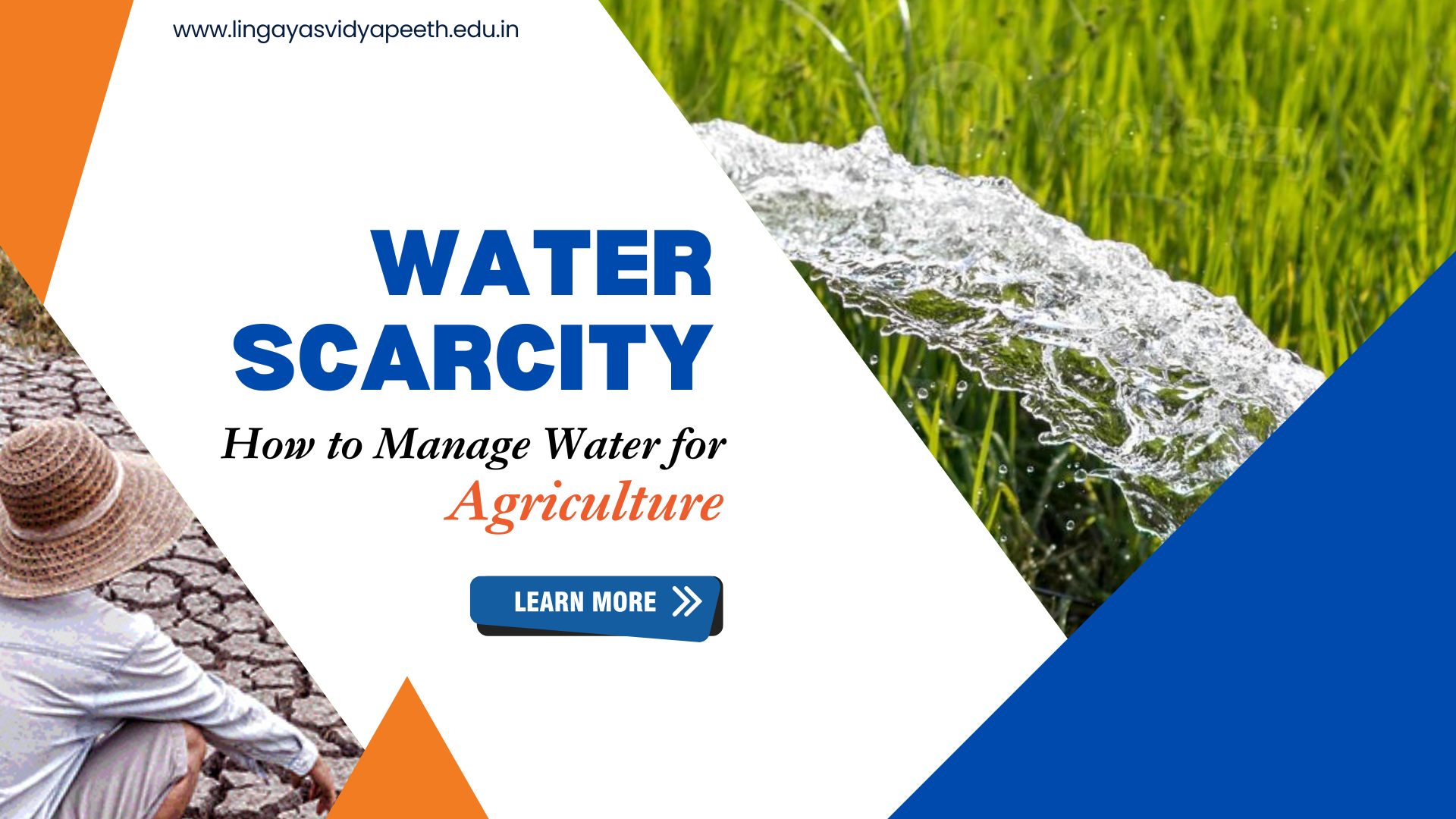
Agriculture – the backbone of our civilization – faces a critical challenge: water scarcity. With a growing population and a changing climate, the demand for freshwater is outpacing its availability. This puts immense pressure on agricultural systems, threatening food security and livelihoods worldwide.
The good news is that we have the tools and knowledge to navigate this water crisis. Here are some key strategies for sustainable water management in agriculture:
1. Precision Irrigation:
2. Water Harvesting and Storage:
3. Crop Selection and Breeding:
4. Regenerative Agriculture:
5. Policy and Education:
Water management in agriculture is not a solo act. It requires a collective effort from farmers, policymakers, researchers, and consumers. By working together, embracing innovation, and adopting sustainable practices, we can navigate the challenges of water scarcity and secure a future where food production thrives alongside environmental responsibility.
From
Dr. Ravi Prakash Mishra
Asso. Prof./ Head
School of Agriculture
Lingaya’s Vidyapeeth
Best Agriculture College in Delhi NCR
Lingayas Vidyapeeth is acclaimed as one of the top colleges in Faridabad for B.Sc agriculture and M.Sc agriculture programs. With a focus on cutting-edge research and hands-on learning experiences, students gain invaluable knowledge and skills in agricultural practices, preparing them for successful careers in this dynamic field. Join us to cultivate your passion for agriculture and shape a sustainable future.
April 15, 2024
RECENT POSTS
CATEGORIES
TAGS
Agriculture Agriculture future AI Architecture artificial intelligence BA English BA Psychology BTech Engineering Business management career Career-Specific Education career guide career option career scope Civil engineering commerce and management Computer Science Computer science engineering Data science degree education Engineering engineering college Engineering students English Literature english program Exam tips Fashion Design Higher Education Journalism journalism and mass communication law Machine Learning MA Psychology Master degree mathematics MBA Mechanical Engineering Pharmacy Psychology Research and Development Skill development students Study Study Tips
University Address: Nachauli, Jasana Road, Faridabad, Haryana
Toll Free: 1800-120-4613
Mobile : 8447744303 | 8447744304 | 8447744306 | 8447744309
[email protected]
[email protected]
[email protected]
[email protected]
Address: C-72, Second Floor, Shivalik, Near Malviya Nagar,
Above HDFC Bank, New Delhi 110017
Ph.No. - 011-46570515 / 45138169 / 41755703 / +91-7303152412
Copyrights © 1998 - 2025 Lingaya's Vidyapeeth (Deemed To Be University). All rights reserved.
It is important to note that the following email IDs and domains are fraudulent and do not belong to our university.
LV only conducts physical/online verification of any document related to examination on the following email id: